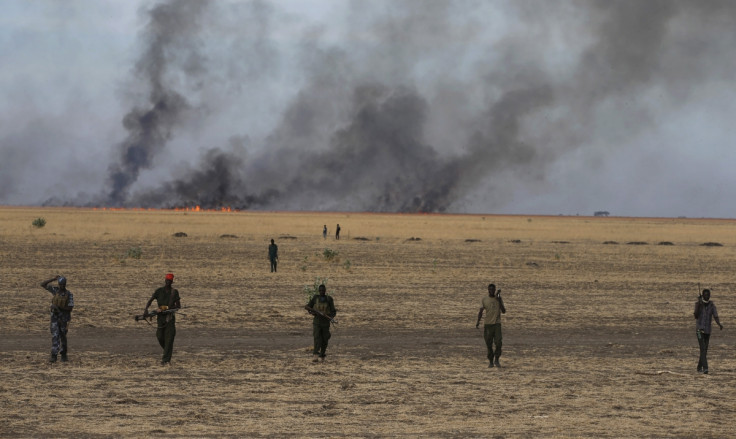South Sudan: Opposition says is already promoting diversity in its army recruitment

South Sudan's two main opposing ethnic groups, the Dinka and Nuer, appear to be no nearer agreeing on how best to form a cohesive national army after the recent peace agreement brought both warring sides to the table. The country's opposition, dominated by Nuer, says it already applies equality and diversity standards when it recruits for its armed forces. The government has yet to respond to the opposition's latest claims.
According to the latest peace deal, the opposition and the government's armies will each be provided with safety and security assurances before being unified into one national army in a bid to prevent any reprisals or score-settling taking place.
"A policy of the leadership of the SPLM/SPLA (IO) for building a future national army of South Sudan includes promoting equality and diversity. Inclusivity is a guiding principle," James Gatdet Dak, opposition leader's press secretary, told the Sudan Tribune.
However, some analysts pointed out the process of reunification might be undermined by the fact that the Dinka and Nuer ethnic groups still dominate in each of their respective opposition factions.
A preliminary list, released earlier this month, of proposed senior officers appearing to favour the Nuer ethnic group has already attracted criticism on social media.
August 2015 peace deal: the key points
- Both parties commit to immediate cessation of violence
- Machar to be reinstated as vice-president
- Foreign troops to pull out
- Military personnel in Juba to be replaced by police and guards
- Creation of transitional government which will stay in power for 30 months
- Presidential elections to be held 30 days before end of transitional government mandate
- Probe into abuses committed during conflict
Full document here
"We should not expect each and every ethnic group in South Sudan to have equal or similar big numbers of soldiers and officers and ranks in the army. This is impossible and unnecessary," said Dak.
A spokesperson for the armed faction of the Sudan People's Liberation Movement-in-Opposition (SPLM-IO), led by vice-president Riek Machar, said its forces have already been promoting inclusivity, seen as a key condition to help build a cohesive national army.
What caused South Sudan conflict?
South Sudan descended into civil war in 2013 when president Salva Kiir, who leads the government's army, fired Machar and his cabinet. The dismissal followed Kiir's decision to replace members of the army and government amid rumours of a possible coup ploy by Machar. Kiir then sparked outrage after dismissing all the main organs of the ruling Sudan People's Liberation Movement arguing that their tenure of office had expired.
Ethnic-related violence then spread with militia groups carrying out attacks in villages and areas known to be inhabited by either Dinka or Nuer tribes. More than 10,000 civilians have so far been killed in the conflict amid allegations of crimes against humanity committed by both sides including extra-judicial killings, abductions, rape, torture and use of child soldiers.
Although the two warring factions have signed at least seven peace deals, the latest in August, the violence has continued, and a January report from the African Union blamed both opposing leaders for the ongoing unrest.
Earlier in March, the UN released a report accusing the government's army of committing several war crimes, including raping children as young as nine.
© Copyright IBTimes 2025. All rights reserved.






















